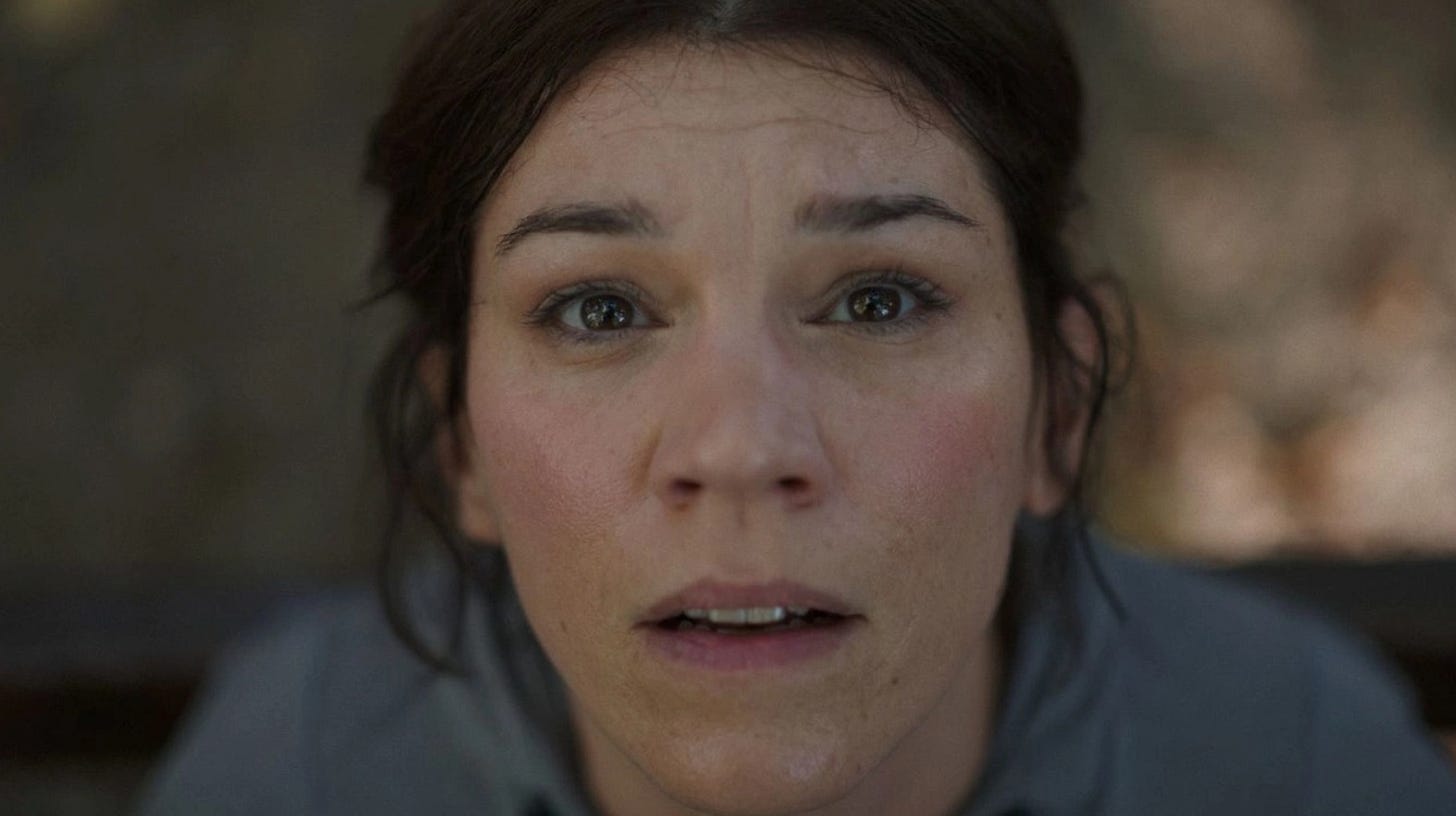Indy Film Fest: Tragovi (Traces)
An anthropologist studies strange signs left in graveyards and other human spaces as she navigates the loss of her last family member.
For Indy Film Fest schedule and tickets, please click here.
Some films are like a puzzle that the audience has to work out for itself. The satisfaction of realizing the assembled whole is usually cathartic moment that makes you appreciate the movie even more.
But some cinema is not so concerned with providing answers, but raising questions that tickle and bother the mind. The act of sifting through the puzzle pieces and trying to imagine how they might fit together is the reward in of itself, even if no satisfying final image is formed.
“Travogi” (Traces) from Croatia falls into this latter category. It’s a quiet, observant film about a woman, Ana (Marija Skaricic), who is sifting through strange signs left on gravestones in her work as an anthropologist. She is living in Zagreb in a large apartment that used to be occupied by her family, after they moved away from the ancestral home deep in the mountains.
Once a sprawling, loving clan, they have dwindled down to almost nothing. Ana, who I’m guessing is in her 40s, never married or had children and only her elderly father (Mate Gulin) is left to her. He does little but sit in the apartment and watch television. Ana has an energetic nightlife with a number of women friends, and between this, her work and her dad, she has a fulfilling if somewhat lonesome life.
Early on, her father passes away and it leaves Ana completely unmoored. She realizes she is now truly alone.
Her interest in the strange signs in a remote part of the country known as Mirila, the resting place of souls, intensifies. There the tribal people did not bury the bodies of the dead but placed them between two upright stones carved with symbols of unknown origin, though they seem to be related to the sun. The body was then removed and disposed of, and the people believe the person’s soul resided with the stones for eternity.
Beyond the obvious connection with her father’s passing, Ana is also engrossed by the signs because of the vitiligo that marks her face and body, patches where the pigment has fled, leaving pale splotches like puzzle pieces. She has a large one under mouth and in one eye, as well as all over her torso and limbs. She covers these up with makeup and suntanning. The condition will only worsen as time goes by.
Clearly, Ana feels she is in someway marked, just like the signs on the gravestones. She begins to notice symbols all around her, from graffiti to hand prints in cement, which mark the passing of a human across that space, leaving a little bit of themself behind.
And really, that’s the entire story. Director Dubravka Turic, who co-wrote the screenplay with Danijel Zezelj, lets us wander around with Ana as she is first tortured by, then embraces this mystery. Not much really “happens” in the traditional cinematic sense, and there are many long wordless passages where we’re simply watching Ana in her search without ending.
At one point she sells her apartment and travels back to her family’s country home to tie up loose ends there. There she runs into Jozo (Niksa Butijer), a childhood friend who’s now a sheep herder. He has a joking, teasing sort of way about him, joshing Ana about her hifalutin life and academic prominence. There’s genuine warmth there, but like much of Ana’s life this is just another transitory waypoint in he continual search for meaning in the symbology all around her.
Maybe this is enough for you to appreciate “Tragovi” for what it is. It wasn’t for me. The contemplation of a mystery isn’t enough for someone of my journalistic bent; I crave answers and meaning. This film feels like the beginning of something very interesting.





